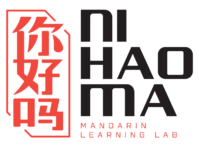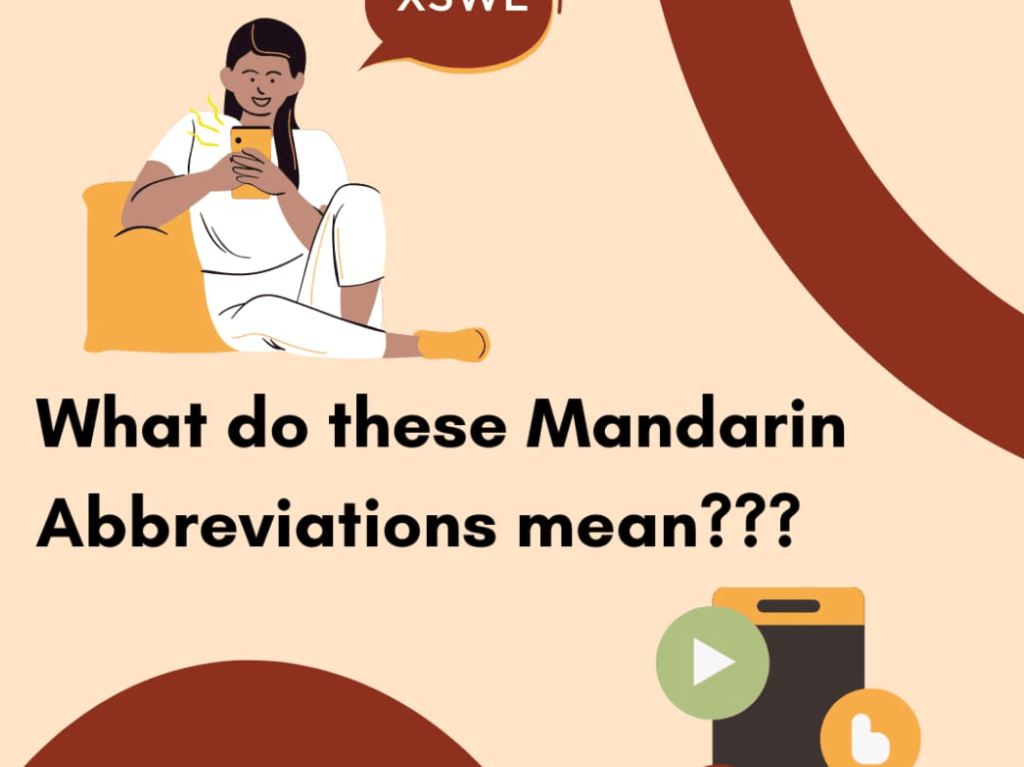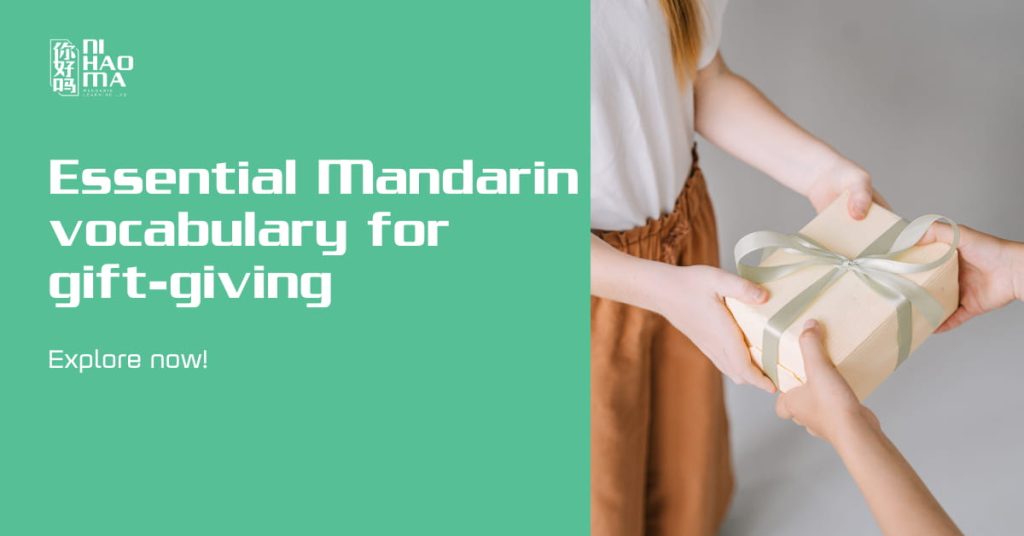Have you finished studying HSK 1 and are preparing to move on to HSK 2? The next step is to master the vocabulary at the HSK 2 level. Memorizing vocabulary is an important step that helps you communicate more effectively in Chinese. In this article, Ni Hao Ma will compile the complete HSK 2 vocabulary list along with easy-to-understand example sentences to help you learn quickly and remember longer!
HSK 2 Vocabulary List
According to the six-level international Chinese proficiency evaluation system, the HSK 2 level requires learners to master about 300 basic vocabulary words, including 150 words learned in HSK 1 and 150 new words. First, you need to know the 150 HSK 1 vocabulary words:
| No | Chinese | Pinyin | English |
|---|---|---|---|
| 1 | 我 | wǒ | I, me |
| 2 | 我们 | wǒmen | we, us (plural) |
| 3 | 你 | nǐ | you |
| 4 | 他 | tā | he, him |
| 5 | 她 | tā | she, her |
| 6 | 这 (这儿) | zhè (zhèr) | this (here), this one |
| 7 | 那 (那儿) | nà (nàr) | that (there), that one |
| 8 | 哪 | nǎ | which |
| 9 | 哪儿 | nǎr | where |
| 10 | 谁 | shéi | who |
| 11 | 什么 | shénme | what, why |
| 12 | 多少 | duōshǎo | how many, how much |
| 13 | 几 | jǐ | a few, several, how many |
| 14 | 怎么 | zěnme | how |
| 15 | 怎么样 | zěnmeyàng | how about, what do you think |
| 16 | 一 | yī | one |
| 17 | 二 | èr | two |
| 18 | 三 | sān | three |
| 19 | 四 | sì | four |
| 20 | 五 | wǔ | five |
| 21 | 六 | liù | six |
| 22 | 七 | qī | seven |
| 23 | 八 | bā | eight |
| 24 | 九 | jiǔ | nine |
| 25 | 十 | shí | ten |
| 26 | 个 | gè | (general measure word) |
| 27 | 岁 | suì | (for age) |
| 28 | 本 | běn | (for books or volumes) |
| 29 | 些 | xiē | some, a few |
| 30 | 块 | kuài | piece, chunk |
| 31 | 不 | bù | no, not |
| 32 | 没 | méi | not, no (negation for past) |
| 33 | 很 | hěn | very, quite |
| 34 | 太 | tài | too, excessively |
| 35 | 都 | dōu | all, both |
| 36 | 一点儿 | yīdiǎnr | a little bit, slightly |
| 37 | 和 | hé | and |
| 38 | 在 | zài | at, in, on |
| 39 | 的 | de | (possessive or descriptive particle) |
| 40 | 了 | le | (modal particle indicating change or completed action) |
| 41 | 吗 | ma | (question particle) |
| 42 | 呢 | ne | (question particle for emphasis or continuation) |
| 43 | 喂 | wèi | hello (phone greeting) |
| 44 | 家 | jiā | home, family |
| 45 | 学校 | xuéxiào | school |
| 46 | 饭店 | fàndiàn | restaurant, hotel |
| 47 | 商店 | shāngdiàn | store, shop |
| 48 | 医院 | yīyuàn | hospital |
| 49 | 中国 | Zhōngguó | China |
| 50 | 北京 | Běijīng | Beijing |
| 51 | 上 | shàng | up, above |
| 52 | 下 | xià | down, below |
| 53 | 前面 | qiánmiàn | front, ahead |
| 54 | 后面 | hòumiàn | behind, at the back |
| 55 | 里面 | lǐmiàn | inside, interior |
| 56 | 今天 | jīntiān | today |
| 57 | 明天 | míngtiān | tomorrow |
| 58 | 昨天 | zuótiān | yesterday |
| 59 | 上午 | shàngwǔ | morning (before noon) |
| 60 | 中午 | zhōngwǔ | noon |
| 61 | 下午 | xiàwǔ | afternoon |
| 62 | 年 | nián | year |
| 63 | 月 | yuè | month |
| 64 | 号 | hào | number, date |
| 65 | 星期 | xīngqī | week |
| 66 | 点 | diǎn | o’clock, point |
| 67 | 分钟 | fēnzhōng | minute |
| 68 | 现在 | xiànzài | now |
| 69 | 时候 | shíhou | time, moment |
| 70 | 爸爸 | bàba | dad, father |
| 71 | 妈妈 | māma | mom, mother |
| 72 | 儿子 | érzi | son |
| 73 | 女儿 | nǚér | daughter |
| 74 | 老师 | lǎoshī | teacher |
| 75 | 学生 | xuéshēng | student |
| 76 | 同学 | tóngxué | classmate |
| 77 | 朋友 | péngyǒu | friend |
| 78 | 医生 | yīshēng | doctor |
| 79 | 先生 | xiānsheng | mister, sir |
| 80 | 小姐 | xiǎojiě | Miss, young lady |
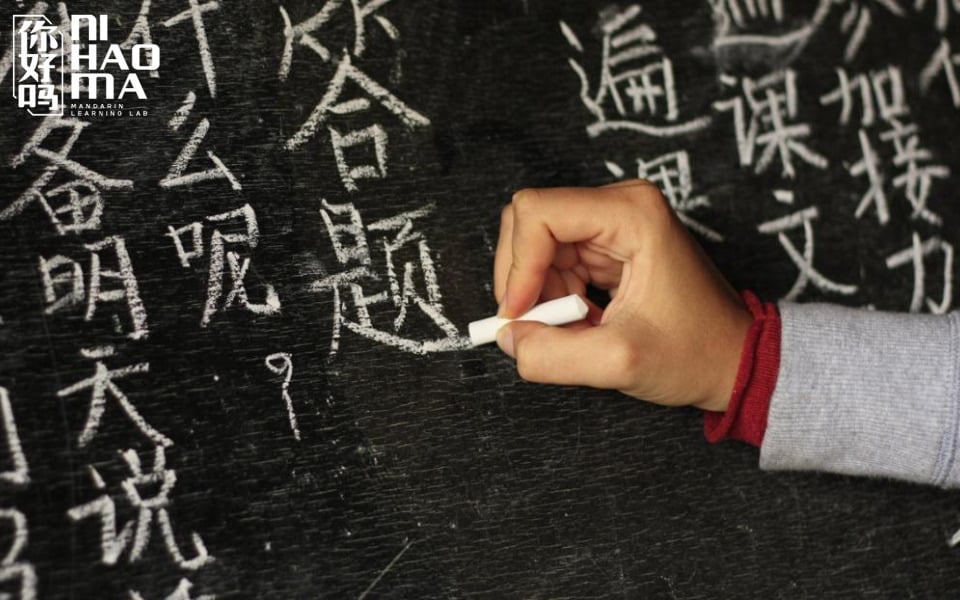
| No | Chinese | Pinyin | English |
| 81 | 衣服 | yīfu | clothes |
| 82 | 水 | shuǐ | water |
| 83 | 菜 | cài | dish, vegetable |
| 84 | 米饭 | mǐfàn | cooked rice |
| 85 | 水果 | shuǐguǒ | fruit |
| 86 | 苹果 | píngguǒ | apple |
| 87 | 茶 | chá | tea |
| 88 | 杯子 | bēizi | cup, glass |
| 89 | 钱 | qián | money |
| 90 | 飞机 | fēijī | airplane |
| 91 | 出租车 | chūzūchē | taxi |
| 92 | 电视 | diànshì | television |
| 93 | 电脑 | diànnǎo | computer |
| 94 | 电影 | diànyǐng | movie, film |
| 95 | 天气 | tiānqì | weather |
| 96 | 猫 | māo | cat |
| 97 | 狗 | gǒu | dog |
| 98 | 东西 | dōngxi | thing, object |
| 99 | 人 | rén | person, human |
| 100 | 名字 | míngzi | name |
| 101 | 书 | shū | book |
| 102 | 汉语 | hànyǔ | Mandarin Chinese |
| 103 | 字 | zì | character, word |
| 104 | 桌子 | zhuōzi | table, desk |
| 105 | 椅子 | yǐzi | chair |
| 106 | 谢谢 | xièxie | thank |
| 107 | 不客气 | búkèqì | you’re welcome |
| 108 | 再见 | zàijiàn | goodbye |
| 109 | 请 | qǐng | please, invite |
| 110 | 对不起 | duìbùqǐ | sorry |
| 111 | 没关系 | méiguānxì | it’s okay, no problem |
| 112 | 是 | shì | to be (am, is, are) |
| 113 | 有 | yǒu | to have |
| 114 | 看 | kàn | to look, to watch |
| 115 | 听 | tīng | to listen |
| 116 | 说 | shuō | to speak, to say |
| 117 | 读 | dú | to read |
| 118 | 写 | xiě | to write |
| 119 | 看见 | kànjiàn | to see |
| 120 | 叫 | jiào | to call, to be called |
| 121 | 来 | lái | to come |
| 122 | 回 | huí | to return |
| 123 | 去 | qù | to go |
| 124 | 吃 | chī | to eat |
| 125 | 喝 | hē | to drink |
| 126 | 睡觉 | shuìjiào | to sleep |
| 127 | 打电话 | dǎdiànhuà | to make a phone call |
| 128 | 做 | zuò | to do, to make |
| 129 | 买 | mǎi | to buy |
| 130 | 开 | kāi | to open, to drive |
| 131 | 坐 | zuò | to sit |
| 132 | 住 | zhù | to live, to reside |
| 133 | 学习 | xuéxí | to study |
| 134 | 工作 | gōngzuò | to work |
| 135 | 下雨 | xiàyǔ | to rain |
| 136 | 爱 | ài | to love |
| 137 | 喜欢 | xǐhuān | to like, to prefer |
| 138 | 想 | xiǎng | to want, to miss |
| 139 | 认识 | rènshi | to know (a person), to recognize |
| 140 | 会 | huì | can, to be able to (skill) |
| 141 | 能 | néng | can, to be able to (ability, permission) |
| 142 | 好 | hǎo | good, well |
| 143 | 大 | dà | big, large |
| 144 | 小 | xiǎo | small, little |
| 145 | 多 | duō | many, much |
| 146 | 少 | shǎo | few, little |
| 147 | 冷 | lěng | cold |
| 148 | 热 | rè | hot |
| 149 | 高兴 | gāoxìng | happy, glad |
| 150 | 漂亮 | piàoliang | beautiful, pretty |
Next, below is a list of 150 new HSK 2 vocabulary words that you need to add at this level:
| No. | Chinese | Pinyin | English | Example |
| 1 | 您 | nín | you (respectful) | 您好!(nǐn hǎo! – Hello!) |
| 2 | 它 | tā | it (for things, animals) | 猫喜欢玩它的玩具。(māo xǐhuān wán tā de wánjù. – The cat likes to play with its toy.) |
| 3 | 大家 | dàjiā | everyone | 大家都来了。(dàjiā dōu lái le. – Everyone has arrived.) |
| 4 | 每 | měi | every | 每天我都会学习汉语。(měi tiān wǒ dōu huì xuéxí Hànyǔ. – I study Chinese every day.) |
| 5 | 为什么 | wèishénme | why | 为什么你这么开心?(wèishénme nǐ zhème kāixīn? – Why are you so happy?) |
| 6 | 零 | líng | zero | 气温是零度。(qìwēn shì líng dù. – The temperature is zero degrees Celsius.) |
| 7 | 两 | liǎng | two (quantity) | 我有两本书。(wǒ yǒu liǎng běn shū. – I have two books.) |
| 8 | 百 | bǎi | hundred | 这本书有百页。(zhè běn shū yǒu bǎi yè. – This book has a hundred pages.) |
| 9 | 千 | qiān | thousand | 一千块钱。(yī qiān kuài qián. – One thousand yuan.) |
| 10 | 第一 | dìyī | first | 他是第一名。(tā shì dìyī míng. – He is in first place.) |
| 11 | 次 | cì | time (occurrence) | 我去过北京一次。(wǒ qù guò Běijīng yī cì. – I have been to Beijing once.) |
| 12 | 件 | jiàn | piece, item (measure word) | 这件衣服很漂亮。(zhè jiàn yīfu hěn piàoliang. – This dress is very beautiful.) |
| 13 | 别 | bié | don’t | 别说话。(bié shuōhuà. – Don’t talk.) |
| 14 | 非常 | fēicháng | very, extremely | 我非常喜欢他。(wǒ fēicháng xǐhuān tā. – I like him very much.) |
| 15 | 也 | yě | also, too | 我也喜欢看电影。(wǒ yě xǐhuān kàn diànyǐng. – I also like watching movies.) |
| 16 | 还 | hái | still, yet, also | 他还在睡觉。(tā hái zài shuìjiào. – He is still sleeping.) |
| 17 | 最 | zuì | most | 她是班里最聪明的学生。(tā shì bān lǐ zuì cōngmíng de xuéshēng. – She is the smartest student in the class.) |
| 18 | 真 | zhēn | really, truly | 这本书真好看!(zhè běn shū zhēn hǎokàn! – This book is really good!) |
| 19 | 正在 | zhèngzài | in the process of | 我正在吃饭。(wǒ zhèngzài chīfàn. – I am eating.) |
| 20 | 已经 | yǐjīng | already | 他已经走了。(tā yǐjīng zǒu le. – He has already left.) |
| 21 | 一起 | yìqǐ | together | 我们一起去吧。(wǒmen yìqǐ qù ba. – Let’s go together.) |
| 22 | 再 | zài | again, once more | 再来一杯咖啡。(zài lái yī bēi kāfēi. – Another cup of coffee.) |
| 23 | 就 | jiù | then, at once | 我一到家就给你打电话。(wǒ yī dào jiā jiù gěi nǐ dǎ diànhuà. – I’ll call you as soon as I get home.) |
| 24 | 因为……所以…… | yīnwèi…suǒyǐ… | because… so… | 因为下雨,所以我没去。(yīnwèi xiàyǔ, suǒyǐ wǒ méi qù. – Because it rained, I didn’t go.) |
| 25 | 虽然……但是…… | suīrán…dànshì… | although… but… | 虽然很难,但是我喜欢。(suīrán hěn nán, dànshì wǒ xǐhuān. – Although it’s difficult, I like it.) |
| 26 | 从 | cóng | from | 我从北京来。(wǒ cóng Běijīng lái. – I come from Beijing.) |
| 27 | 比 | bǐ | compared to | 他比我高。(tā bǐ wǒ gāo. – He is taller than me.) |
| 28 | 往 | wǎng | towards, to | 请往前走。(qǐng wǎng qián zǒu. – Please walk forward.) |
| 29 | 离 | lí | away from (distance) | 我家离学校很近。(wǒ jiā lí xuéxiào hěn jìn. – My home is very close to the school.) |
| 30 | 得 | de | (structural particle) | 他跑得很快。(tā pǎo de hěn kuài. – He runs very fast.) |
| 31 | 着 | zhe | (particle indicating continuous state) | 门开着。(mén kāi zhe. – The door is open.) |
| 32 | 过 | guò | (particle indicating past experience) | 我吃过饭了。(wǒ chī guò fàn le. – I have eaten.) |
| 33 | 吧 | ba | (particle for suggestion/request) | 我们走吧。(wǒmen zǒu ba. – Let’s go.) |
| 34 | 机场 | jīchǎng | airport | 我要去机场。(wǒ yào qù jīchǎng. – I want to go to the airport.) |
| 35 | 教室 | jiàoshì | classroom | 我们在教室里学习。(wǒmen zài jiàoshì lǐ xuéxí. – We study in the classroom.) |
| 36 | 房间 | fángjiān | room | 我的房间很小。(wǒ de fángjiān hěn xiǎo. – My room is very small.) |
| 37 | 路 | lù | road, path | 这条路很长。(zhè tiáo lù hěn cháng. – This road is very long.) |
| 38 | 左边 | zuǒbiān | left side | 商店在左边。(shāngdiàn zài zuǒbiān. – The shop is on the left side.) |
| 39 | 右边 | yòubiān | right side | 银行在右边。(yínháng zài yòubiān. – The bank is on the right side.) |
| 40 | 外 | wài | outside | 我在门外等你。(wǒ zài mén wài děng nǐ. – I’ll wait for you outside the door.) |
| 41 | 旁边 | pángbiān | beside, next to | 他坐在我旁边。(tā zuò zài wǒ pángbiān. – He sat next to me.) |
| 42 | 一下 | yīxià | a bit, a moment | 请等一下。(qǐng děng yīxià. – Please wait a moment.) |
| 43 | 早上 | zǎoshàng | morning | 我早上七点起床。(wǒ zǎoshàng qī diǎn qǐchuáng. – I wake up at 7 AM.) |
| 44 | 晚上 | wǎnshàng | evening, night | 我晚上看电影。(wǒ wǎnshàng kàn diànyǐng. – I watch movies in the evening.) |
| 45 | 小时 | xiǎoshí | hour | 我等了两个小时。(wǒ děng le liǎng gè xiǎoshí. – I waited for two hours.) |
| 46 | 时间 | shíjiān | time | 你有时间吗?(nǐ yǒu shíjiān ma? – Do you have time?) |
| 47 | 去年 | qùnián | last year | 我去年去了中国。(wǒ qùnián qù le Zhōngguó. – I went to China last year.) |
| 48 | 日 | rì | day | 今天是几日?(jīntiān shì jǐ rì? – What day is it today?) |
| 49 | 生日 | shēngrì | birthday | 祝你生日快乐!(zhù nǐ shēngrì kuàilè! – Happy birthday to you!) |
| 50 | 哥哥 | gēge | older brother | 我的哥哥很高。(wǒ de gēge hěn gāo. – My older brother is very tall.) |
| 51 | 姐姐 | jiějie | older sister | 我和姐姐是好朋友。(wǒ hé jiějie shì hǎo péngyou. – My older sister and I are good friends.) |
| 52 | 弟弟 | dìdi | younger brother | 我有一个弟弟。(wǒ yǒu yī gè dìdi. – I have a younger brother.) |
| 53 | 妹妹 | mèimei | younger sister | 我爱我的妹妹。(wǒ ài wǒ de mèimei. – I love my younger sister.) |
| 54 | 丈夫 | zhàngfu | husband | 我的丈夫很帅。(wǒ de zhàngfu hěn shuài. – My husband is very handsome.) |
| 55 | 妻子 | qīzi | wife | 我的妻子很漂亮。(wǒ de qīzi hěn piàoliang. – My wife is very beautiful.) |
| 56 | 孩子 | háizi | child, children | 她有两个孩子。(tā yǒu liǎng gè háizi. – She has two children.) |
| 57 | 男人 | nánrén | man | 这个男人是谁?(zhège nánrén shì shuí? – Who is this man?) |
| 58 | 女人 | nǚrén | woman | 她是一个漂亮的女人。(tā shì yī gè piàoliang de nǚrén. – She is a beautiful woman.) |
| 59 | 服务员 | fúwùyuán | waiter/waitress | 服务员,请给我菜单。(fúwùyuán, qǐng gěi wǒ càidān. – Waiter, please give me the menu.) |
| 60 | 鱼 | yú | fish | 我喜欢吃鱼。(wǒ xǐhuān chī yú. – I like to eat fish.) |
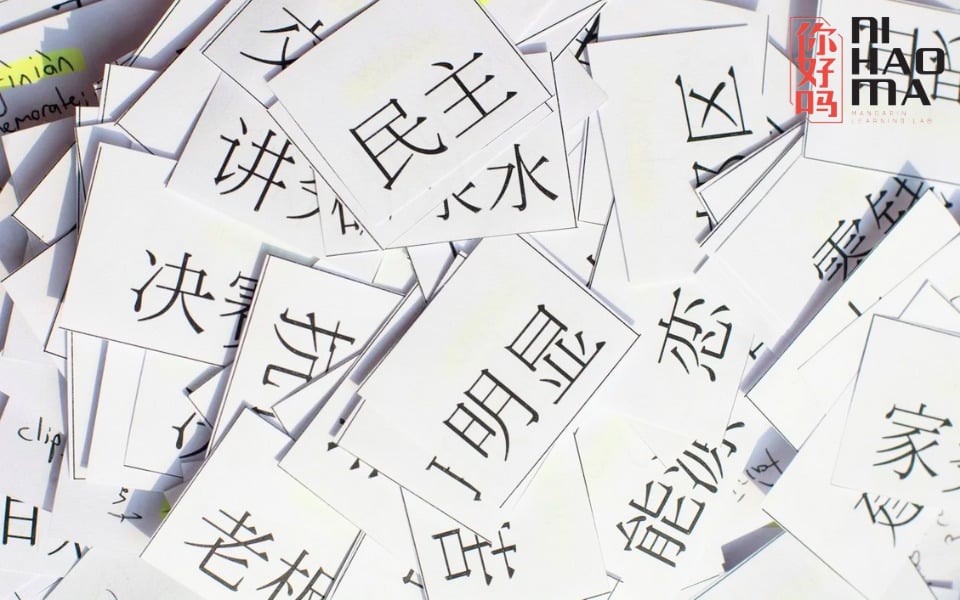
| No. | Chinese | Pinyin | English | Example |
| 61 | 羊肉 | yángròu | lamb | 我喜欢吃羊肉串。(wǒ xǐhuān chī yángròu chuàn. – I like to eat lamb skewers.) |
| 62 | 牛奶 | niúnǎi | milk | 我每天早上喝牛奶。(wǒ měitiān zǎoshàng hē niúnǎi. – I drink milk every morning.) |
| 63 | 鸡蛋 | jīdàn | egg | 我做了一个鸡蛋饼。(wǒ zuò le yī gè jīdàn bǐng. – I made an omelette/egg pancake.) |
| 64 | 西瓜 | xīguā | watermelon | 西瓜很甜。(xīguā hěn tián. – The watermelon is very sweet.) |
| 65 | 咖啡 | kāfēi | coffee | 我每天都要喝咖啡。(wǒ měitiān dōu yào hē kāfēi. – I have to drink coffee every day.) |
| 66 | 雪 | xuě | snow | 今天下雪了。(jīntiān xià xuě le. – It’s snowing today.) |
| 67 | 药 | yào | medicine | 你应该吃药了。(nǐ yīnggāi chī yào le. – You should take your medicine now.) |
| 68 | 手机 | shǒujī | mobile phone | 我的手机没电了。(wǒ de shǒujī méi diàn le. – My mobile phone is out of battery.) |
| 69 | 手表 | shǒubiǎo | watch (wristwatch) | 他戴着一块新手表。(tā dàizhe yī kuài xīn shǒubiǎo. – He is wearing a new watch.) |
| 70 | 眼睛 | yǎnjīng | eye | 她的眼睛很漂亮。(tā de yǎnjīng hěn piàoliang. – Her eyes are very beautiful.) |
| 71 | 身体 | shēntǐ | body, health | 祝你身体健康。(zhù nǐ shēntǐ jiànkāng. – I wish you good health.) |
| 72 | 公共汽车 | gōnggòngqìchē | bus | 我坐公共汽车去上班。(wǒ zuò gōnggòngqìchē qù shàngbān. – I take the bus to work.) |
| 73 | 报纸 | bàozhǐ | newspaper | 我每天早上看报纸。(wǒ měitiān zǎoshàng kàn bàozhǐ. – I read the newspaper every morning.) |
| 74 | 门 | mén | door | 请关门。(qǐng guān mén. – Please close the door.) |
| 75 | 题 | tí | question, problem | 这道题很难。(zhè dào tí hěn nán. – This question is very difficult.) |
| 76 | 课 | kè | lesson, class | 我们今天有汉语课。(wǒmen jīntiān yǒu Hànyǔ kè. – We have Chinese class today.) |
| 77 | 姓 | xìng | surname, family name | 你姓什么?(nǐ xìng shénme? – What is your surname?) |
| 78 | 问题 | wèntí | question, problem | 我有一个问题。(wǒ yǒu yī gè wèntí. – I have a question.) |
| 79 | 事情 | shìqing | matter, affair, thing | 这件事情很重要。(zhè jiàn shìqing hěn zhòngyào. – This matter is very important.) |
| 80 | 考试 | kǎoshì | exam, test | 我明天有考试。(wǒ míngtiān yǒu kǎoshì. – I have an exam tomorrow.) |
| 81 | 票 | piào | ticket | 我买了两张电影票。(wǒ mǎi le liǎng zhāng diànyǐng piào. – I bought two movie tickets.) |
| 82 | 意思 | yìsi | meaning | 这是什么意思?(zhè shì shénme yìsi? – What does this mean?) |
| 83 | 颜色 | yánsè | color | 你喜欢什么颜色?(nǐ xǐhuān shénme yánsè? – What color do you like?) |
| 84 | 铅笔 | qiánbǐ | pencil | 我用铅笔写字。(wǒ yòng qiánbǐ xiězì. – I write with a pencil.) |
| 85 | 面条 | miàntiáo | noodles | 我喜欢吃面条。(wǒ xǐhuān chī miàntiáo. – I like to eat noodles.) |
| 86 | 火车站 | huǒchēzhàn | train station | 我要去火车站。(wǒ yào qù huǒchēzhàn. – I want to go to the train station.) |
| 87 | 公司 | gōngsī | company | 我在一家大公司工作。(wǒ zài yī jiā dà gōngsī gōngzuò. – I work at a large company.) |
| 88 | 宾馆 | bīngguǎn | hotel | 我住在这个宾馆。(wǒ zhù zài zhège bīngguǎn. – I am staying at this hotel.) |
| 89 | 说话 | shuōhuà | to speak, to talk | 他们在说话。(tāmen zài shuōhuà. – They are talking.) |
| 90 | 卖 | mài | to sell | 这个商店卖衣服。(zhège shāngdiàn mài yīfu. – This shop sells clothes.) |
| 91 | 问 | wèn | to ask | 我想问你一个问题。(wǒ xiǎng wèn nǐ yī gè wèntí. – I want to ask you a question.) |
| 92 | 走 | zǒu | to walk, to leave | 我们走吧。(wǒmen zǒu ba. – Let’s go.) |
| 93 | 进 | jìn | to enter, to come in | 请进。(qǐng jìn. – Please come in.) |
| 94 | 出 | chū | to go out, to exit | 他从房间里出来了。(tā cóng fángjiān lǐ chū lái le. – He came out of the room.) |
| 95 | 跑步 | pǎobù | to run, to jog | 我每天跑步。(wǒ měitiān pǎobù. – I run every day.) |
| 96 | 到 | dào | to arrive, to reach | 我到家了。(wǒ dào jiā le. – I’ve arrived home.) |
| 97 | 穿 | chuān | to wear (clothes), to put on (shoes) | 她穿了一件新衣服。(tā chuān le yī jiàn xīn yīfu. – She wore a new dress.) |
| 98 | 洗 | xǐ | to wash | 我要洗手。(wǒ yào xǐ shǒu. – I want to wash my hands.) |
| 99 | 给 | gěi | to give | 请给我一杯水。(qǐng gěi wǒ yī bēi shuǐ. – Please give me a glass of water.) |
| 100 | 找 | zhǎo | to look for, to find | 我在找我的书。(wǒ zài zhǎo wǒ de shū. – I am looking for my book.) |
| 101 | 懂 | dǒng | to understand | 你懂了吗?(nǐ dǒng le ma? – Do you understand?) |
| 102 | 笑 | xiào | to smile, to laugh | 她开心地笑了。(tā kāixīn de xiào le. – She smiled happily.) |
| 103 | 告诉 | gàosù | to tell | 请告诉我你的名字。(qǐng gàosù wǒ nǐ de míngzi. – Please tell me your name.) |
| 104 | 准备 | zhǔnbèi | to prepare | 我准备去旅行。(wǒ zhǔnbèi qù lǚxíng. – I am preparing to travel.) |
| 105 | 开始 | kāishǐ | to begin, to start | 电影开始了。(diànyǐng kāishǐ le. – The movie has started.) |
| 106 | 介绍 | jièshào | to introduce | 我来介绍一下我的朋友。(wǒ lái jièshào yīxià wǒ de péngyou. – Let me introduce my friend.) |
| 107 | 帮助 | bāngzhù | to help | 谢谢你的帮助。(xièxie nǐ de bāngzhù. – Thank you for your help.) |
| 108 | 玩 | wán | to play, to have fun | 我们一起去玩吧。(wǒmen yìqǐ qù wán ba. – Let’s go play together.) |
| 109 | 送 | sòng | to give as a gift, to see off | 我送你回家。(wǒ sòng nǐ huí jiā. – I’ll take you home.) |
| 110 | 等 | děng | to wait | 请等我一下。(qǐng děng wǒ yīxià. – Please wait for me for a moment.) |
| 111 | 让 | ràng | to let, to allow | 让我来帮你。(ràng wǒ lái bāng nǐ. – Let me help you.) |
| 112 | 起床 | qǐchuáng | to get up (from bed) | 我每天早上六点起床。(wǒ měitiān zǎoshàng liù diǎn qǐchuáng. – I get up at 6 AM every day.) |
| 113 | 唱歌 | chànggē | to sing | 她很喜欢唱歌。(tā hěn xǐhuān chànggē. – She likes to sing very much.) |
| 114 | 跳舞 | tiàowǔ | to dance | 他会跳舞吗?(tā huì tiàowǔ ma? – Can he dance?) |
| 115 | 旅游 | lǚyóu | to travel | 我喜欢旅游。(wǒ xǐhuān lǚyóu. – I like to travel.) |
| 116 | 上班 | shàngbān | to go to work | 我每天九点上班。(wǒ měitiān jiǔ diǎn shàngbān. – I go to work at 9 AM every day.) |
| 117 | 生病 | shēngbìng | to get sick | 他生病了,不能来上课。(tā shēngbìng le, bù néng lái shàngkè. – He is sick and cannot come to class.) |
| 118 | 休息 | xiūxi | to rest | 你应该多休息。(nǐ yīnggāi duō xiūxi. – You should rest more.) |
| 119 | 运动 | yùndòng | to exercise, to do sports | 我每天都运动。(wǒ měitiān dōu yùndòng. – I exercise every day.) |
| 120 | 游泳 | yóuyǒng | to swim | 我喜欢游泳。(wǒ xǐhuān yóuyǒng. – I like to swim.) |
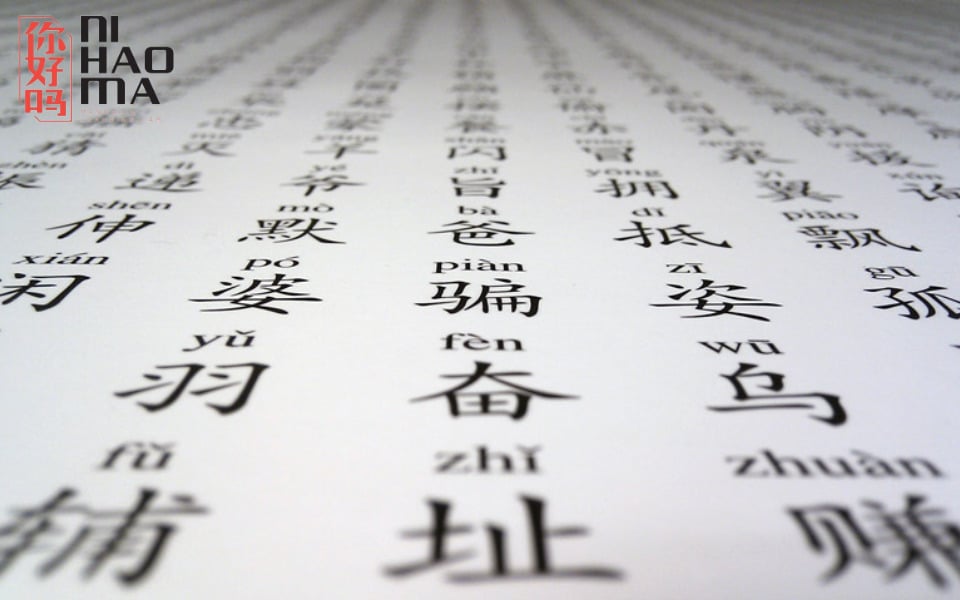
| No. | Chinese | Pinyin | English | Example |
| 121 | 踢足球 | tīzúqiú | to play soccer/football | 我喜欢踢足球。(wǒ xǐhuān tīzúqiú. – I like to play soccer.) |
| 122 | 打篮球 | dǎlánqiú | to play basketball | 他每天都打篮球。(tā měitiān dōu dǎlánqiú. – He plays basketball every day.) |
| 123 | 完 | wán | to finish, to complete | 我吃完饭了。(wǒ chī wán fàn le. – I have finished eating.) |
| 124 | 觉得 | juédé | to feel, to think | 我觉得他很好。(wǒ juédé tā hěn hǎo. – I think he is very good.) |
| 125 | 知道 | zhīdao | to know | 我不知道。(wǒ bù zhīdao. – I don’t know.) |
| 126 | 希望 | xīwàng | to hope | 我希望你能来。(wǒ xīwàng nǐ néng lái. – I hope you can come.) |
| 127 | 可以 | kěyǐ | can, may, able to | 你可以帮我吗?(nǐ kěyǐ bāng wǒ ma? – Can you help me?) |
| 128 | 要 | yào | to want, to need | 我要一杯水。(wǒ yào yī bēi shuǐ. – I want a glass of water.) |
| 129 | 可能 | kěnéng | maybe, possibly | 他可能会来。(tā kěnéng huì lái. – He might come.) |
| 130 | 高 | gāo | tall, high | 他比我高。(tā bǐ wǒ gāo. – He is taller than me.) |
| 131 | 红 | hóng | red | 我喜欢红色。(wǒ xǐhuān hóngsè. – I like red.) |
| 132 | 白 | bái | white | 这件衣服是白色的。(zhè jiàn yīfu shì báisè de. – This dress is white.) |
| 133 | 黑 | hēi | black | 他的头发是黑色的。(tā de tóufà shì hēisè de. – His hair is black.) |
| 134 | 忙 | máng | busy | 我很忙。(wǒ hěn máng. – I am very busy.) |
| 135 | 快 | kuài | fast, quick | 他跑得很快。(tā pǎo de hěn kuài. – He runs very fast.) |
| 136 | 慢 | màn | slow | 请说慢一点。(qǐng shuō màn yīdiǎn. – Please speak a bit slower.) |
| 137 | 远 | yuǎn | far | 学校离我家很远。(xuéxiào lí wǒ jiā hěn yuǎn. – The school is far from my home.) |
| 138 | 近 | jìn | near, close | 商店离我家很近。(shāngdiàn lí wǒ jiā hěn jìn. – The shop is close to my home.) |
| 139 | 好吃 | hǎochī | delicious (for food) | 这道菜真好吃。(zhè dào cài zhēn hǎochī. – This dish is really delicious.) |
| 140 | 累 | lèi | tired | 我很累。(wǒ hěn lèi. – I am very tired.) |
| 141 | 长 | cháng | long | 这条裙子很长。(zhè tiáo qúnzi hěn cháng. – This skirt is very long.) |
| 142 | 新 | xīn | new | 我买了一件新衣服。(wǒ mǎi le yī jiàn xīn yīfu. – I bought a new outfit.) |
| 143 | 贵 | guì | expensive | 这件衣服很贵。(zhè jiàn yīfu hěn guì. – This dress is very expensive.) |
| 144 | 便宜 | piányi | cheap | 这个手机很便宜。(zhège shǒujī hěn piányi. – This phone is very cheap.) |
| 145 | 晴 | qíng | clear (weather), sunny | 今天天气很晴。(jīntiān tiānqì hěn qíng. – The weather is very clear today.) |
| 146 | 阴 | yīn | cloudy, overcast | 今天是阴天。(jīntiān shì yīntiān. – Today is an overcast day.) |
| 147 | 错 | cuò | wrong, mistaken | 你说错了。(nǐ shuō cuò le. – You said it wrong.) |
| 148 | 快乐 | kuàilè | happy | 祝你生日快乐!(zhù nǐ shēngrì kuàilè! – Happy birthday to you!) |
| 149 | 对 | duì | to (for), with | 对我来说,这很重要。(duì wǒ lái shuō, zhè hěn zhòngyào. – To me, this is very important.) |
| 150 | 对 | duì | correct, right | 你说得对。(nǐ shuō de duì. – What you said is correct.) |
See more: Complete HSK 1 Vocabulary Compilation (According to the New 9-Level System)
Conclusion
We hope this comprehensive HSK 2 vocabulary list, along with detailed examples, provides you with a valuable tool to enhance your Chinese vocabulary and skills. Regularly practicing and applying new words in real-life conversations will help you become more confident. Remember to save this article from Ni Hao Ma for review whenever you need it. We wish you good luck with your studies and hope you achieve your Chinese language goals soon!
